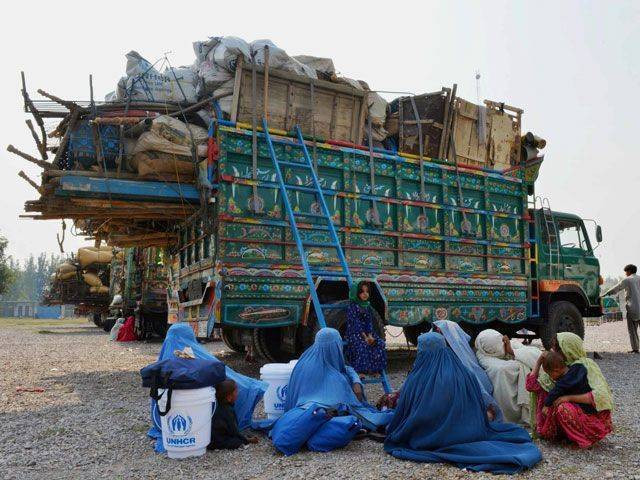When the missing link is found
Women from FATA join efforts to safeguard rights, abolish FCR.

PHOTO: AFP
Many of them came out in support of abolishing FCR on March 22, a day before Pakistan Day.
In the past, attempts to mobilise women from the Federally Administered Tribal Areas on a single platform for the purpose have been little more than political moves. For instance, Awami National Party arranged a gathering a few months ago of its female members who favoured the abolition of FCR. However, what transpired on March 22 was exclusively a community-based response to safeguard their rights.
For the first time in national history, a group of women from Fata who are both educated and politically aware voiced their concerns to journalists in Peshawar. The conference was aptly titled, ‘The tribal women of Fata have a question’.
Fatima Batool, who hails from Kurram Agency and studies at University of Peshawar, told journalists, “March 23 is celebrated in Pakistan every year to commemorate the Lahore Resolution [that helped create an independent nation]. But Fata has yet to be freed
from FCR.”
According to Batool, the tribespeople do not know what it feels like to be a citizen of a free, independent country.
A majority of women also voiced their demand for political rights and their due status in socio-political matters. They threw their weight behind the merger of Fata with Khyber-Pakhtunkhwa.
Nazish, another speaker who belonged to South Waziristan, narrated tales of the atrocities caused by FCR.
She said the suffering of women has increased following the arrest of 22 men from the Suleman Khel tribe under FCR. The wives of those tribespeople who have been arrested frequently visit the political administration’s office and request them to release their husbands. According to Nazish, there is no one to hear their voices.
Nasihat Bibi from Bajaur Agency raised similar concerns against FCR’s territorial responsibility clause. She said, “Our markets are closed under FCR and we are not able to manage [finances].”
Fatima, who hails from Kurram Agency, said “Punishing the whole tribe for one man or a few people’s crime is inhumane.”
The women also shed light on the problems they face due to the security situation.
Kanwal, from Khyber Agency, said, “When we enter Bara and other parts of Khyber Agency, it feels like we’ve entered another country. There are so many obstacles along the way just to reach our home.”
Nausheen, another speaker from Orakzai, said the people of Fata deserve the same laws as the rest of the country if the government considers the region to be a part of Pakistan.
Compromising rights
The seven agencies of Fata and the six frontier regions are also home to a large number of minorities. For decades, they have owned property in the region and established their own dynamics with Muslims.
However, the FCR has negatively impacted their way of life. Minorities are treated unfairly and are deprived of their rights.
The former governor made an attempt to issue domicile certificates to non-Muslims and gave some of them the status of maliks.
Saman Masih, who belongs to a Christian family in Landikotal, Khyber Agency, voiced her satisfaction over these steps. “I hope our government will support us in the same way in future by abolishing FCR.”
The decision taken by women from Fata has been hailed as a positive step. ANP leader Bushra Gohar believes it is a step in the right direction. She believed women adding their voice to the mainstream narrative confirms there is a consensus on abolishing FCR and integrating Fata with K-P.
According to Gohar, it is time for the government to announce due representation to women from the tribal areas in the Parliament and local government. In addition, the federal government must declare a 10-year development package for Fata and Pata.
Published in The Express Tribune, March 28th, 2016.













COMMENTS
Comments are moderated and generally will be posted if they are on-topic and not abusive.
For more information, please see our Comments FAQ